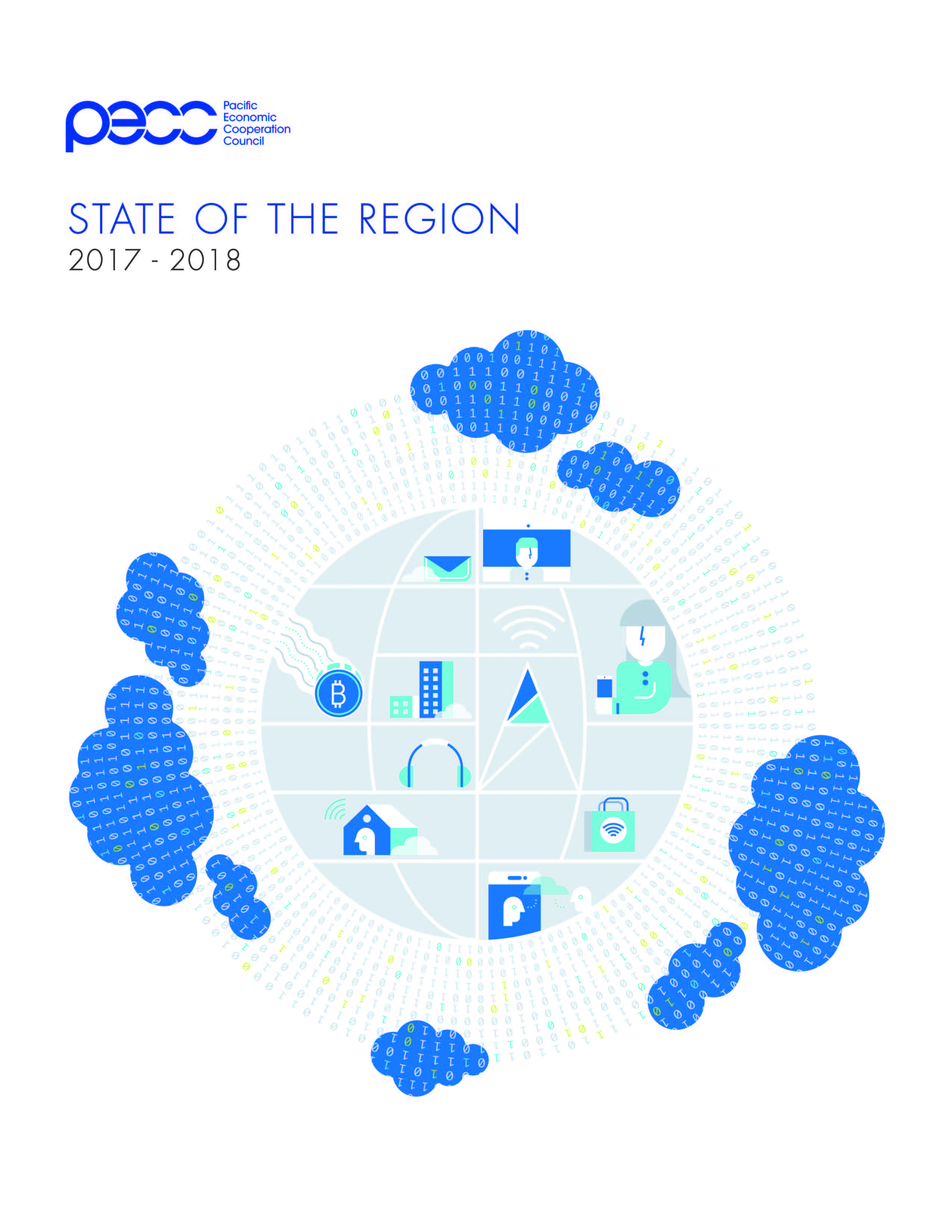 The State of the Region 2017-2018 report of PECC was released today on the sidelines of APEC senior official and ministerial meetings ahead of the summit. The Report is an annual statement of PECC’s views on the major developments affecting Asia-Pacific regional cooperation. It contains a macroeconomic overview of the current state of the Asia-Pacific region. as well as the results of PECC's annual survey of the region's opinion leaders. This year, the survey was conducted from 10 August to 14 September and responses were received from 722 opinion leaders. The survey panelists were selected based on their expertise and direct involvement or influence on regional policy-making, coming from government, business and civil society.
The State of the Region 2017-2018 report of PECC was released today on the sidelines of APEC senior official and ministerial meetings ahead of the summit. The Report is an annual statement of PECC’s views on the major developments affecting Asia-Pacific regional cooperation. It contains a macroeconomic overview of the current state of the Asia-Pacific region. as well as the results of PECC's annual survey of the region's opinion leaders. This year, the survey was conducted from 10 August to 14 September and responses were received from 722 opinion leaders. The survey panelists were selected based on their expertise and direct involvement or influence on regional policy-making, coming from government, business and civil society.
According to the PECC survey, the top 5 priorities that the APEC Leaders’ should address in Da Nang are:
- Promoting sustainable, innovative and inclusive growth through the APEC Growth Strategy
- The emergence of anti-globalization & anti-trade sentiments
- Progress towards the Bogor Goals and the Free Trade Area of the Asia-Pacific (FTAAP)
- Improving economic financial and social inclusion in the region
- Climate change cooperation
The Report also featured a thematic chapter on the challenges and opportunities offered by the digital economy. As mentioned in Chapter 2 of the Report, “the digital economy, if successful, can promote efficiency, innovation, and inclusion.”
The impact of the digital economy on labor markets will be significant and appropriate adjustments will be needed. Routine jobs will be replaced by machines and systems, through the process of automation. According to the respondents of the PECC annual survey, some types of jobs are expected to decrease, such as clerical and assembly line work, while others such as technical and professional jobs are expected to increase. “There will inevitably be some shifts in the future labor market as certain jobs become redundant while new skills are required. Various digital tools and online platforms can help us become more inclusive in our approach to education and upskilling; this can be our chance to bring more people to benefit from easier access to knowledge and to better, higher paying jobs,” said PECC Co-chair Ambassador Tang Guoqiang.
Increasing protectionism was seen as the top risk to growth of the Asia-Pacific region according to the PECC annual survey. Lack of political leadership and slowdown in the Chinese economy were second and third risks to growth.
“Against the backdrop of concerns over rising protectionism, arguments for regional economic integration efforts and emphasis on pathways to achieving the Free Trade Area of the Asia-Pacific (FTAAP) and support for the multilateral trading system become even more pertinent. They provide stability, certainty, and a sense of forward momentum,” said PECC Co-chair Don Campbell.
Download the full report.
Related press releases

 The
The